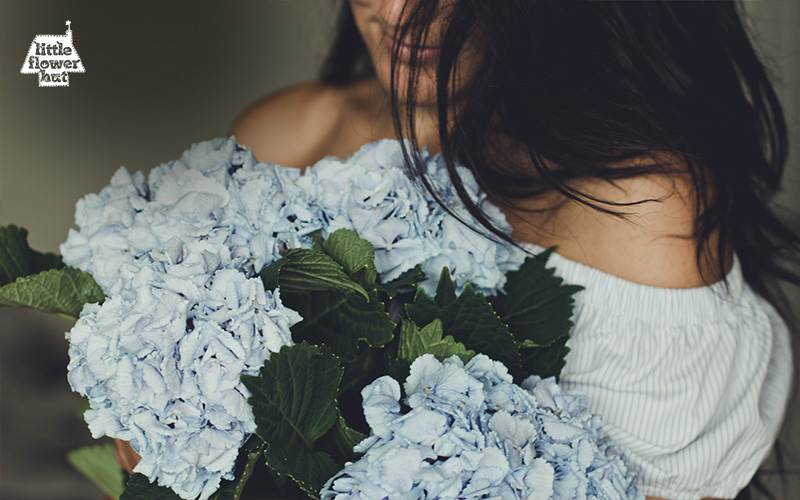blog, Flower Guide
Mindfulness and Wellness: The Mental Health Benefits of Flowers
With so many distractions, deadlines, and demands to juggle every day, finding time for self-care and inner peace can seem like an impossible task. Indeed, in the hustle and bustle of modern life, it’s easy to overlook the simple things that bring us joy and peace. Yet, one of the simplest and most accessible ways to nurture our mental health is right in front of us—through the beauty of flowers.
This article delves into the world of floral therapy, exploring the connection between flowers and our mental health and providing practical tips for incorporating them into your daily routines for a mindfulness boost.
The Psychological Effects of Flowers
The Link Between Flowers and Mental Health
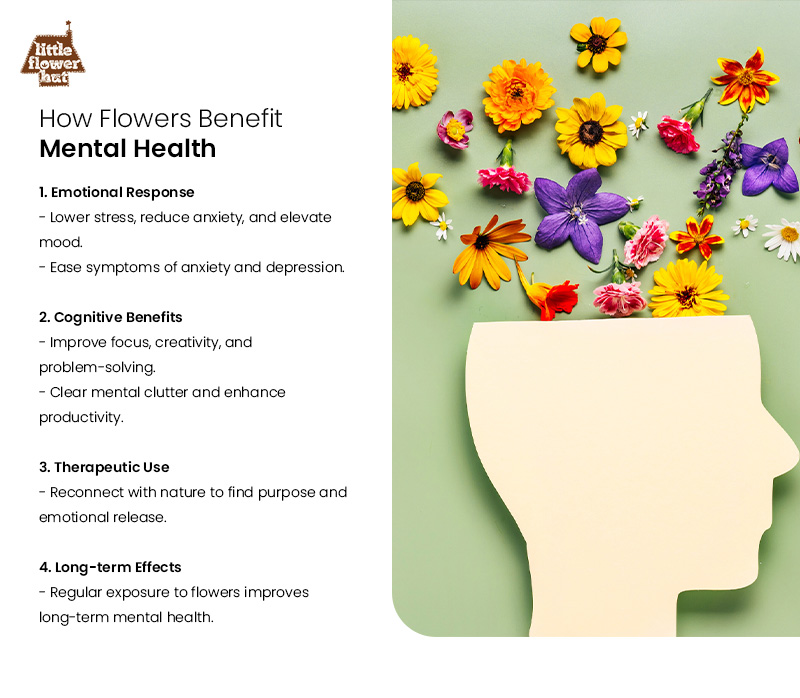
More than just decorative elements, flowers are also natural mood boosters that can have surprising therapeutic effects on your emotional well-being.
1. Emotional Response
A study conducted at Rutgers University found that simply placing flowers in your home or office can help lower stress levels, reduce anxiety, and elevate your mood. Moreover, flowers have also been shown to trigger the release of mood-boosting chemicals like serotonin and dopamine, which are responsible for feelings of happiness and well-being. This natural boost helps calm the mind, easing symptoms of anxiety and depression.
2. Cognitive Benefits
Aside from their mental health benefits, flowers can also support cognitive function. Research suggests that flowers can improve focus, creativity, and problem-solving abilities. Placing table flowers in your workspace or study areas can help clear mental clutter, promote relaxation, and enhance productivity. This calming influence allows the mind to focus more effectively, improving both memory and concentration.
3. Therapeutic Use
Flowers also play a key role in therapeutic practices. Horticultural therapy, for example, uses nature, plants, and flowers as a tool for healing. Gardening or working with nature can be incredibly therapeutic, supporting recovery from trauma, stress, or mental health struggles. Nurturing plants enables you to reconnect with nature, find a sense of purpose, and experience emotional release—all contributing to improved well-being.
4. Long-term Effects
The positive impact of flowers on mental health isn’t just fleeting. In fact, regular exposure has long-lasting effects. Whether you’re tending to a garden, arranging flowers, or simply keeping them around your home, consistent interaction with flowers has been shown to improve long-term mental health. This ongoing connection to nature cultivates a sense of peace and contentment, which helps to boost mood and resilience over time.
Colour Psychology and Floral Symbolism
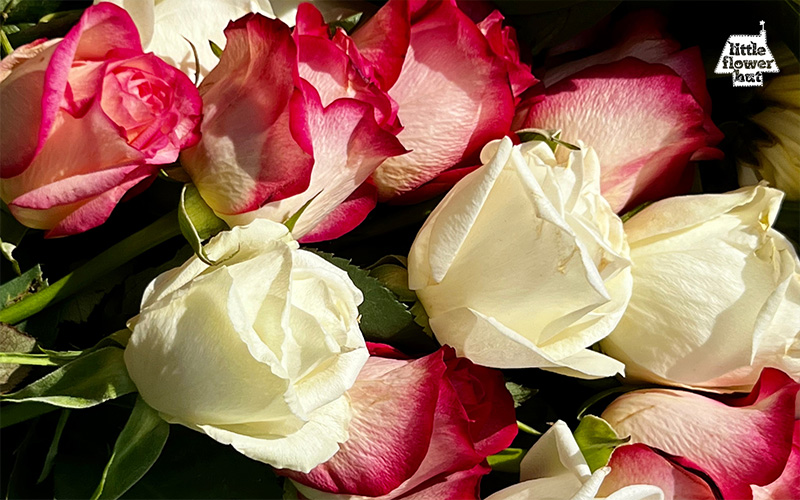
Just as certain scents can evoke memories or moods, the colours of flowers can also stir specific feelings within us, uplifting our mental health in different ways.
1. Warm Colours
Flowers in warm colours, such as red, orange, and yellow, can give us an instant boost of energy and positivity. For example, red flowers like roses and tulips are iconic symbols of feelings of passion and love. On the other hand, we commonly associate yellow blooms, like sunflowers or daffodils, with happiness and optimism. A vase arrangement of these flowers is perfect for brightening up spaces, lifting your mood, and energising your surroundings.
2. Cool Colours
Cool-toned flowers, like blue hydrangeas and violets, are known for their calming effects and ability to clear the mind. Lavender, for example, is a classic calming flower that not only offers a soothing visual presence but also releases a gentle fragrance that has been used for centuries in aromatherapy to reduce stress and improve sleep. Blue flowers are also typically linked to tranquillity and have been shown to help reduce anxiety, which is why you’ll often see them used in mindfulness practices and meditation spaces.
3. Neutral Colours
Flowers in soft shades of white, cream, and pastels bring a sense of purity and simplicity to any space. White flowers like lilies or orchids create a calm, grounding atmosphere, while pastel blooms such as pale pink peonies or soft lavender lilacs offer a gentle, soothing effect. These flowers are perfect for moments of quiet reflection or for those who want to create a minimalist space. Their beauty encourages mindfulness and helps foster a sense of inner peace.
4. Personal Interpretation and Choice of Colours
All that being said, our emotional connection to colours is deeply personal, shaped by our experiences, culture, and individual preferences. That’s why choosing flowers based on the colours that resonate most with you can heighten their effects on your mental health. For example, some people may feel more at peace with soft pinks and yellows, rather than blues and purples. Selecting flowers and colours that speak more to you personally will enhance their positive influence.
How You Can Use Flowers for a Mental Health Boost
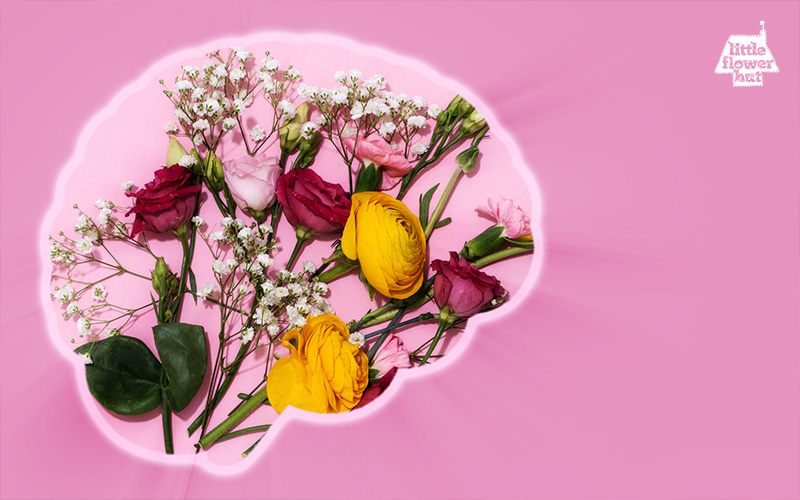
Now that we’ve explored the powerful connection between flowers and mental health, it’s time to look at how you can incorporate these natural mood boosters into your everyday life.
Bringing the Benefits of Flowers into Your Everyday Life
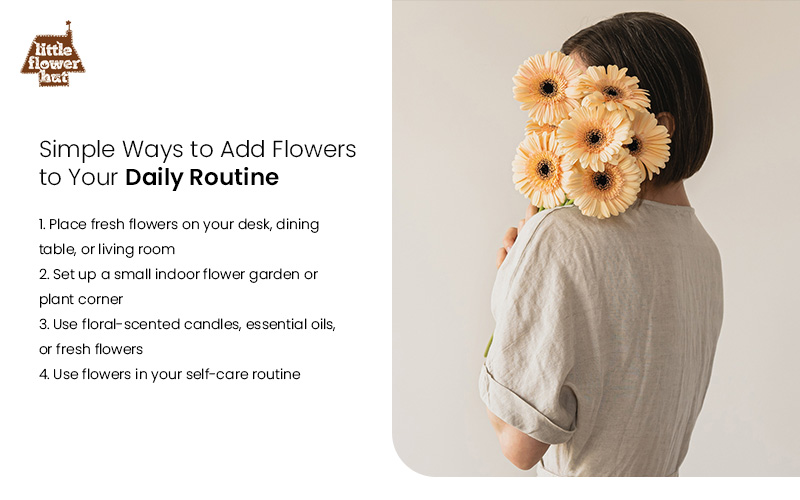
1. Keep Fresh Flowers Around You
One of the easiest ways to make flowers part of your everyday life is by placing them in areas where you spend the most time, like the living room, kitchen, or workspace. A small vase of fresh flowers on your desk or dining table serves as a cheerful focal point, helping to reduce stress and lift your mood.
2. Create a Small Flower Garden
You could also bring a touch of nature indoors by setting up a small flower garden or a dedicated plant corner. Whether it’s a small collection of blooms on your balcony or a few potted plants like peace lilies or orchids, caring for them can be a soothing, mindful activity that helps you relax and de-stress. The act of nurturing your plants—watering, pruning, or just observing them grow—helps you connect with nature. And, as you watch the plant grow from a seedling or cutting, you’ll experience a rewarding sense of progress and achievement that can boost your mood and sense of well-being.
3. Incorporate Floral Scents
The scents of flowers like lavender, jasmine, and rose are known to benefit your mental health by reducing anxiety and promoting relaxation. Whether through floral-scented candles, essential oils, or fresh flowers like gardenias, bringing these fragrances into your home helps create a calming atmosphere. These small touches can turn your space into a peaceful sanctuary where you feel at ease.
Learn more: Fragrant Flowers: 8 Best Smelling Flowers in the World
4. Use Flowers in Your Self-Care Routine
You can easily incorporate flowers into your self-care routine to support your mental health and create a more soothing experience. Add fresh flower petals to your bath, use flower-infused oils before bed, or create herbal teas from edible flowers. You could even make your own flower-scented candles. These small touches help you connect with nature and turn everyday rituals into peaceful, calming moments.
5. Bring Flowers to Your Workspace
Many of us spend most of our days at work, so surrounding ourselves with something beautiful and soothing can be a great pick-me-up. For instance, you could place a small vase or pot of artificial flowers at your desk. This will not only brighten up your space but also help you stay calm and balanced, even on stressful workdays.
The Mental Health Benefits of Flower Arranging

You may have heard of or seen flower arranging, the art of carefully selecting and arranging flowers to create beautiful displays. But beyond just creating something lovely for your home, flower arranging offers numerous benefits for your mental health.
1. Mindfulness and Relaxation
Flower arranging provides a serene escape from the chaos of daily life. As you carefully select blooms, experiment with colours, and thoughtfully arrange them, you’ll find yourself slipping into a meditative state. The gentle focus required to create a beautiful arrangement can help clear your mind and reduce anxiety. This peaceful practice offers a much-needed respite from the stresses of modern life.
2. Promotes Self-Expression
Flower arranging is also a creative outlet where you can express yourself freely. Whether you’re drawn to bold, vibrant colours or prefer a more subtle, delicate look, each arrangement becomes a unique expression of your personality. Moreover, the joy of creating something beautiful with your own hands can boost your self-esteem and provide a sense of accomplishment.
3. Encourages Problem-Solving
While flower arranging is a relaxing hobby that benefits mental health, it also challenges your mind. Choosing the right colours, balancing shapes, and creating a harmonious arrangement requires careful thought and problem-solving skills. This exercise can help improve your focus, concentration, and decision-making abilities.
If you’re interested in diving deeper into this calming art, consider joining a flower arranging workshop. These workshops offer a great opportunity to learn new skills, connect with others, and experience the full mental health benefits of working with flowers.
Why Flowers Make Wonderful Gifts
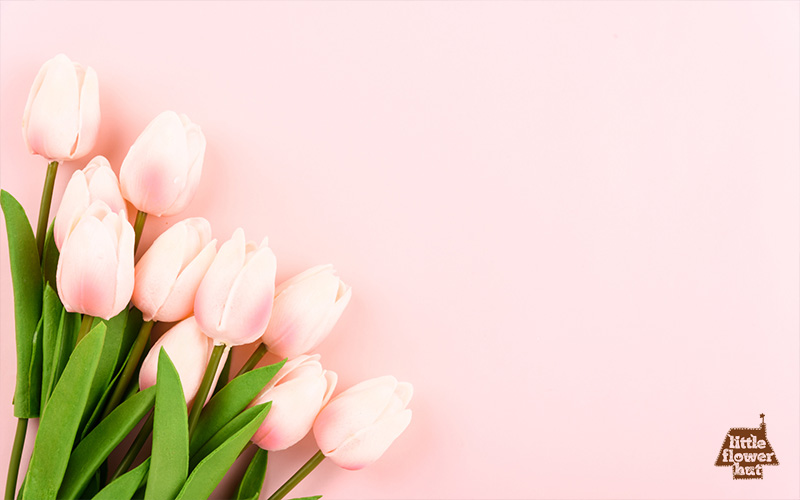
Flowers also make wonderful gifts, a thoughtful gesture that can brighten someone’s day and uplift their spirits.
1. Expression of Emotion
Flowers have a way of speaking when words fall short. Whether you’re expressing love, gratitude, sympathy, or simply a friendly hello, you’ll be surprised at how flowers can convey your emotions perfectly. A bouquet of roses can say “I love you” to a significant other, a vibrant sunflower arrangement can convey cheerfulness, and a simple white lily can offer condolences. The beauty and symbolism behind each bloom make gifting flowers a powerful way to communicate feelings that might otherwise be difficult to express.
2. Joy and Positivity
Receiving flowers is like receiving a hug from nature. Their beauty and fragrance can instantly lift your spirits, bringing a smile to your face and a sense of calm to your heart. Whether it’s a birthday, anniversary, or simply a “just because” gift, flowers can brighten someone’s day and make them feel special. They can offer comfort during tough times and celebrate joyful occasions, making them a versatile and thoughtful gift.
3. Encouraging Social Connections
Flowers are known to evoke happiness simply by their presence, making them the perfect gift for anyone in need of a pick-me-up. Gifting flowers is a simple yet powerful way to show someone you care, whether it’s a close friend, a distant relative, or a coworker. It’s a gesture that can bridge distances and foster a sense of community. By sharing flowers, we’re not just exchanging a physical gift; we’re also sharing a piece of ourselves and creating a positive emotional connection.
4. Mindful Gifting Experience
Gifting the right flowers can make all the difference. Consider the recipient’s personality, preferences, and the occasion. A thoughtful and personalised gift can make a lasting impression. Whether you’re selecting a classic bouquet of roses or a unique arrangement of wildflowers, the process of choosing flowers can be a joyful and mindful experience.
Frequently Asked Questions About Flowers
How can I maintain fresh flowers for a longer time?
To keep your cut flowers fresh, trim the stems at an angle before placing them in water and change the water regularly. Remove any wilting leaves or petals to prevent bacteria build-up, and keep them in a cool place away from direct sunlight. Additionally, adding flower food or a small amount of sugar to the water can nourish the stems, helping the flowers last longer. It’s also important to recut the stems every few days to ensure they can take in as much water as possible.
What are some creative ways to incorporate dried flowers into your mental health routine?
Dried flowers can be used in various creative ways, such as making potpourri, crafting floral wreaths, or creating pressed flower art. These activities allow you to enjoy the therapeutic mental health benefits of flowers long after they’ve wilted. You can also use dried flowers to decorate journals or create sachets for your drawers, bringing a calming fragrance and aesthetic into your everyday life. These simple crafts not only add beauty to your surroundings but also help promote relaxation and mindfulness.
How can I incorporate flowers into my self-care routine?
Incorporate flowers into your self-care routine by using them in flower-infused baths, creating herbal teas from edible flowers, or simply appreciating the beauty of fresh flowers in your space. You can also use flower oils or essential oils in your skincare routine for a soothing sensory experience. Flower petals can be added to homemade face masks or used to create DIY beauty treatments, turning your self-care time into a peaceful, rejuvenating ritual.
To make this even easier, consider signing up for a flower subscription service, so you can enjoy a fresh selection of blooms delivered to your door each month, keeping your space vibrant and your self-care routine blooming with joy.
Conclusion
With their calming presence, ability to evoke positive emotions, and therapeutic effects in creative activities, flowers offer a natural—and beautiful—way of enhancing your mental health. By bringing flowers into your daily life, you invite nature’s healing touch into your home and mind, creating an environment of peace and joy.
To explore a stunning selection of fresh flowers that can brighten your space and elevate your mood, visit Little Flower Hut, your trusted online florist in Singapore. With their vibrant beauty and mood-boosting benefits, our flowers can help create a more peaceful and fulfilling life, one bloom at a time.
Get in touch with us today.

